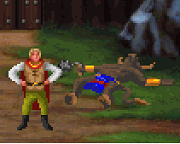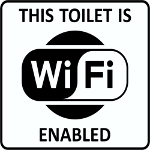|
Hello, friends! There has been a huge growth in the number of new investors in the stock market since the Coronavirus Crash of Spring 2020. Along with that, there was a huge explosion in the number of SPAC being brought to market. Although this community is growing quickly, it is a different type of investing with its own terminology, its own inflection points, and its own rhythm. It is a style of investing that can involve long periods of inactivity, followed by a few days or weeks of significant growth. It is a class of investments that usually requires you to do your own research, as the SPAC has no products/revenue/advertising of its own. Because of their booming popularity and the large and relatively safe growth they can offer, I think it's the appropriate time to give them their own thread. I will copy/paste some of the basics from u/SpacVet in the SPAC subreddit, as it concisely describes the basic terminology and is comprised of readily available information. quote:What are SPACs? SPACs became extremely popular in 2020, with almost four times as many brought to market in 2020 vs. 2019. The SPAC process is faster and cheaper than a traditional IPO, which makes it more appealing to small and medium sized private companies that might not have the cash or the time to go through a traditional IPO. Keep in mind that it is not always a 2 year period until the SPAC trust is liquidated; this is one of the things you'll need to check on a SPAC by SPAC basis. The SPAC itself is basically a giant, formless pool of money. To gauge if a specific one is a good bet, you'll need to investigate the SPAC team. Do they have previous experience bringing a SPAC to market? How did those perform before and after the merger was finalized? Do they have significant corporate experience in the field they're targeting? Do they tweet and go on CNBC a lot to hype their vehicles? When a SPAC begins circling a target and enters negotiations, there is usually no indication to the market that things are happening. When talks are leaked to a reputable outlet like Bloomberg or Reuters, there is a significant chance that the talks will result in a Letter of Intent (LOI) or Definitive Agreement (DA). Reported talks or a LOI/DA will almost always spike the SPAC prices, and thus it's important to get your chips in the middle before the news is announced. This, in my opinion, is why SPACs are a much better bet for retail investors vs. IPOs. With an IPO, you have no ability to get in early or use your brain and your fingers to gain a head start over the general public. All you can do is pile in on IPO day and hope for the best. With a SPAC, you can calmly do your DD and put down your money weeks or months ahead of the action. And if/when the action arrives, you can gauge the market reaction and make smarter decisions and usually exit with your principal intact and some form of profit likely. The primary risk with buying Commons near NAV - my primary strategy - is time and opportunities elsewhere. Note that LOIs are not ironclad and the two parties can walk away. DAs are signed and sealed and are much more reliable. quote:Units, Shares and Warrants Your initial chance to buy in is with Units. They are handled differently by each broker, and often have a one time cost to split each ticker in your portfolio into Shares and Warrants. New traders sometimes get confused and get worried that it's a per-unit fee, but don't worry because it's not. After this initial period, for the remainder of the SPAC you'll have the choice of buying Commons and Warrants. Commons usually have a soft price floor of about $10 (check the SEC filings for a SPAC to get specific) because if the SPAC fails to merge by its expiration, Common holders are reimbursed from the trust. This is referred to as the NAV. It is unusual for a SPAC Common to fall below NAV for a significant length of time. This can happen however, if the announced target is particularly bad or the SPAC walks away from a deal with a lot of time left on the clock. Investors may choose to cut their losses and cash out even at 9.50 or 9.75 if there's 6 or 12 months left and they don't want to be stuck holding a bad investment until the trust pays out. Note that this is an unusual situation, and in the long run a common with a $10 floor will usually rise to this level of temporarily depressed. As described above, Warrants are a higher-risk, higher-reward play versus Commons. Because it costs 11.50 to redeem a Warrant, in a perfect world the price would lag $11.50 behind the Commons. This is rarely the case, however. Because Warrants have no NAV, your potential risk is 100% of your investment. In addition, Warrants cannot be redeemed until a specified date after the merger is complete and the stock ticker has changed. The stock price often drops significantly after the merger, as retail SPAC investors and the SPAC team cash out their profits. But as a general rule, you can use the 11.50 difference as a starting benchmark to determine if a Warrant is a good investment. 6 or 9 months ago, Warrants were often a better deal and the risk was worth the reward. But in the past few months as SPACs have started forming a bubble, it's become normal to see a SPAC with the Warrants trading at $3 and the Commons at $12 with no LOI or DA signed. This is clearly a bad deal, as the 11.50 redemption cost makes the Warrant more expensive than the Common. Not to mention the increased risk! I used to primarily buy Warrants, but in the present climate most are overvalued. You can still find SPACs with cheap Warrants, but they're usually ones that are very new and have no target and thus have little chance of merging in the next 3-6 months. When you buy a Warrant on a brand new SPAC, all you really have to go on is the quality of the SPAC team and their previous experience. Your mileage may vary. Warrants can however grow your portfolio much faster than Commons. a $2 price increase means a lot more to a $3 warrant than a $12 Common. You will have to rely on your own appetite for risk on a SPAC-by-SPAC basis. I believe that just about covers the basics! I'm sure I missed a few important things, and I'll edit as necessary. There are a lot of good Goon investors and discussions in the Daytrading Discord, which hopefully someone will link in here. I use a combination of Goons and the SPACs subreddit to get a feel for each SPAC's team and its outlook. https://spactrack.net/ is an invaluable resource for the nuts and bolts of each SPAC. The dates to remember, the trust size and Warrant ratios, the SEC filings, etc. Do not invest on the basis of forum discussion; look into each SPAC yourself. My personal investment strategy is to buy SPAC Commons from experienced teams when below $10.50, and preferably below $10.25. I also prefer SPACs that are at least 6 months into their life cycle, because it means they've been around long enough to realistically have feelers out to potential targets or possibly have ongoing negotiations. With the major SPAC boom of the past 6 months, I am mentally shortening this number down towards 3 months, because things have begun moving significantly faster. Investing in a SPAC is a balancing act. You want to get in early enough to get a good price that is close to NAV to protect yourself, but not so early that your money is going to be sitting idle for 6-12 months. This is where forum chatter and looking at the trading volume can provide clues. I would much rather be too early at a low price, than too late and forced to follow the wave with a riskier cost basis. If I see a SPAC from a reputable team with an LOI/DA below $10.25, I'll invest almost no matter who the target is, their industry, or how the merger has been viewed by the market to that point. A SPAC can gap up on the LOI, the DA, the announcement of a merger vote date, or during the ramp up to the merger itself. My strategy is to ride as many low-risk price catalyst waves as possible. It's often difficult to predict how a certain SPAC or merger partner will be received by the public, so I like to spread my portfolio around a variety of high quality SPACs between $10 and $10.50 in the current SPAC market. I rarely chase announced targets or buy in above that due to the increased risk and the recent tendency for most things to fall back to near $10 if they're elevated due to a DA or a hot rumor. My only recent exception to this is CCIV, where I started with a core position at $10.04 and threw in a lot more at $13 once it was reported that they were in talks with Lucid Motors. Once I take a position, I usually stick with it until the date of the merger vote. This is the last remaining catalyst for a price increase before the ticker changes. I never hold through merger, as the NAV is removed at this time and there is no longer any protective floor. As stated earlier, the price often falls at this point anyway as investors cash out and move on to the next SPAC. Keep in mind that the merger vote can fail; SHLL's merger vote with Hyliion failed twice, with a resulting panic and flash crash within minutes of the live conference calls. Those are both burned into my brain, as I was on the call for both and SHLL was my largest position. Don't assume any step of the SPAC process as a given! Also, on the day the SPAC merger is completed and the ticker changes over to the public company, there can be a delay during which your position is locked out until your broker switches you to the new ticker. It is usually the same day, sometimes the next day, and in rare cases multiple days. CCH/UTZ unfortunately switched over on the same day that TSLA and AAPL split their stocks, and I was on the phone with TDA for over 2 hours trying to get access to my UTZ shares. It ended up taking 3(!) trading days for my position to be switched over because TDA's risk assessors were unwilling to float the funds for CCH holders until the SPAC released the money to them. Some brokers had it the same day, some the next day, and TDA took 3 days. Not good! If the new ticker tanks while you're midstream, you're SOL. So IMO there's a lot of reasons to bail pre-merger. I'd also like to add that I personally feel confident using margin on SPAC Commons below $10.25 only as I feel there is a low amount of monetary risk and it allows me to amplify my winners for a very low cost. For instance, if your broker charges 6% APR for margin then your cost is 0.5% per month. On a NAV SPAC with a reasonable chance of finding a target in 2 months, this will cost you 1% interest. I'll gladly pay 1% interest to double my position on a ticker that goes from $10.50 to $12 or $14. I'm not even thinking about the ones that hit $20 or $30 or $50. This is how I amplify my upside on an investment with a solid $10 floor that might not be as immediately profitable as a vanilla NASDAQ ticker. But again - there's not nearly as much risk either. Please, please, don't use margin unless you have solid SPAC experience and understand what you're buying and how the SPAC life cycle usually plays out. SPACs often crash in unison by 5% or 10% as the market rotates out of them for a certain reason (or for no reason at all). I feel comfortable doing it and it has been very successful for me, but I recommend thinking hard before dipping your toe in the water. So keeping in mind my personal strategy and what I look for in a SPAC, here's the list of tickers that I'm currently invested in or I'm watching for future investment. I'll try to update this regularly as tickers both enter and exit the stage. Please feel free to come to me with questions at any time, point out what I got wrong or missed, and so forth. I'm still refining my strategies and trying to improve. As always, do your own research and don't invest what you can't afford to lose! https://docs.google.com/spreadsheets/d/1iCrMlWYtxL9ONIUboYJIXSSsUz0HfoklETLyI6tr5jA/edit?usp=drivesdk FistEnergy fucked around with this message at 00:41 on Apr 28, 2021 |
|
|
|

|
| # ? May 3, 2024 23:24 |
|
Holy poo poo. SPACTon is going crazy now that GME is dying down. The next question is: what's a good spac? And what should I look for? 1) Status; 2) Target areas. 3) Management team; 4) Trust valuation. There are around 300 of these things floating around there right now. Are any of them good? How do I tell a good SPAC? And the answer is: Do your homework. SPACDaddy and Spactrack are generally pretty good. The reddit is reasonably well-moderated. And FistEnergy and I and a lot of others are more or less encyclopedias of this stuff. But I think 6 new SPACs hit the market this week and it's tough to keep up. When this thread gets longer I'll post my favorite babies. G-Mawwwwwww fucked around with this message at 01:23 on Feb 2, 2021 |
|
|
|
I prefer SPACs with above 300 million to make sure they can target a decent sized company. I don't really have a preference for the larger SPACs. They can target whales the other companies can't, but they can also end up competing against the IPO process with those bigger private companies. I also didn't address what makes the terms of a SPAC deal 'good' or 'bad' to a SPAC investor because the effect of the deal terms doesn't usually manifest itself until after the merger. I'm interested in playing the price pops from the pre-merger catalysts and getting out before the NAV rug is pulled away. FistEnergy fucked around with this message at 01:27 on Feb 2, 2021 |
|
|
|
My favorite strategy for SPACs is to use the near-NAV commons as a cash reserve. At the end of the trading day, I take a look at my cash balance (I don't use the margin I'm allotted) and then buy spac commons under 10.50 (if they exist!) until I am basically left with no cash. Yes, I have done this and literally the same day have a spac pop 20% after hours, and the realistic downside is 0.5% or less. Of course, I also am in some SPACs that I have researched more thoroughly and am intentionally holding until a rumor/LOI/DA pop. Looking forward to some SPAC DDs here. My favorite (and I would be way more jazzed if it wasn't super expensive right now) is AJAX. Amazing team: https://ajaxcap.com/, AND the promote is half the size of a normal SPAC, so you are less likely to get dumped on as much if you do hold through whatever they eventually merge with. One last thing: I strongly encourage anyone holding SPAC shares to think VERY carefully before holding through merger. Much of the time, you will get DUMPED on.
|
|
|
|
As an idiot who bought (slightly) into the GME hype and am just waiting to lose my investment, I am all about this thread. A friend who is muchh more knowledgeable than I tuned me into CCIV which I'm only finding out now <is> a SPAC. Question: I see references to purchasing Common shares and / or Warrants, but in the description cribbed from Reddit above it seems like they are typically bundled. Is this the case, or do you need to choose which you are purchasing?
|
|
|
|
Good post OP. SPACs are an interesting innovation.
|
|
|
|
Commons and warrants are normally bundled on ipo as units. Each unit has a common and a fraction of a warrant. 52 days in (more or less) they split and you can buy each.
|
|
|
|
I've dipped my toe into the water with a small variety of the larger ones (Gores, Cohn etc) via a small amount of commons just to see whats up. I'm pretty patient, and I don't mind waiting for news for these to go up. Thanks for the write up!
|
|
|
|
I don't mess with units because that's way too early in the life cycle to be live money
|
|
|
|
GrandmaParty posted:Commons and warrants are normally bundled on ipo as units. Each unit has a common and a fraction of a warrant. 52 days in (more or less) they split and you can buy each. Ok, this makes more sense, thanks. I bought 90 common of CCIV today which is way past that 52 day mark so they didn't include the Warrants.
|
|
|
|
I got into SPACs in September with the UTZ merger because I grew up on crab chips and thought it would be funny to tell my wife we had $10000 of potato chips. I got into HYLN/VLDR too late, canceling out most of those UTZ gains. At Thanksgiving I had it all figured out, and was 50% near NAV commons/units in my brokerage account. Since Christmas I've been 100% SPACs, recently starting to pick up warrants which make up ~20% of my current holdings. Had some good wins on APXT, GIK, FIII, HCAC, FTOC and got some small gains out of GHIV and FUSE. I'm up 40% since Thanksgiving, even with last weeks pullback and half my balance in cash the first month. Originally I was considering near NAV to be <$10.5. More recently I've adjusted that to anything below $11.5, especially for SPAC teams who had an initial successful merger. I only purchase warrants below $2, I don't like the risk versus how they move above $3. As OP mentioned, they are like $11.5 call options, but you can't always exercise them. Taking $QS as an example, in their run up to $132, warrants topped out at $42. With popular pre-target EV tickers like SNPR running at $12 but warrants at $3 I don't see the upside compared to the maximum downside going to 100%. My strategy differs a little from OP's, I'm usually out of the majority of my position on a large LoI/DA announcement or even a rumor, especially the warrants. Rule of thumb has been 100% of warrants and 50% of commons gone on the initial bounce as they tend to fade after announcement. I sat too long on GHIV, GIK, and FIII after their announcement, when I could have had that money out at +25-30% searching for something else instead of languishing for 2 months. I still have some FIII hanging out, hoping for an announcement of a merger date or business partnership to give me another bounce then I'm out. I putting that to the test on FTOC, out with a 50% gain and have been much happier rolling that back into something else. If I'm in something with MEME POTENTIAL like crypto I'll probably change my mind. I'm going to keep riding this train until it stops and I go back to being boring and throwing all my spare money in VTSAX. The limited risk and the occasional moment of looking over at my second monitor and seeing +$15000 and scrambling to figure out if I should realize those gains is pretty enjoyable. Currently in AACQ(W), BTAQ, CRHC(W), FPAC(W), FIII, FTOC, FUSE, GNRSW, IMPX, MLAC, SNPR, SOAC for reasons ranging from "FinTech/EV is hot" to "lol weed" to "pepe silvia lines connecting twitter follows between random executives".
|
|
|
|
Friendship ended with the Stock Trading Thread Hello SPAC gang Current holdings: ACAC, CRHC, CRHC WS, FPAC, FPAC WS, FIII, FTOC, FUSE, HIGA, HZON, IPOD U, IPOE, IPOE U, IPOE WS, IPOF U, LFTRU, PSTH, TWND, TWND WS, XPOA Have had great success getting in near-ish NAV and holding. Almost always end up at least +5-10% relatively short term, but 50%+ hasn't been that uncommon either. Very rarely will get in after an initial pop (e.g. got in IPOE < 10.50, but bought a lot more after the announcement, which so far has worked out). Very few plays have ended up closing at a loss (made a dumb move or two early summer). Splinter fucked around with this message at 02:20 on Feb 2, 2021 |
|
|
|
I like the thread title and we've got some great starting content. I found out about SPACs when I bought UTZ last year right as it became public (for the same reason as you Arzakon but about half as much money) and I got all confused about the fact that it didn't IPO and started looking into it. Made a 30% return (on a very small investment) in a few months holding FIII and sold, I'm in a couple others now to see how they go.
|
|
|
|
ground floor spac crew 
|
|
|
|
Keen to get stuck into some of these
|
|
|
|
I’ve never messed with SPACs before, but you guys have convinced me I should. Excited to dip my toe in.
|
|
|
|
skybolt_1 posted:Ok, this makes more sense, thanks. I bought 90 common of CCIV today which is way past that 52 day mark so they didn't include the Warrants. You can still buy CCIV units, they may show as CCIV/UT or CCIV.UT depending on broker, the warrants will show as CCIV/WT or CCIV.WT There might be other broker names but these are the 2 I see people post them as.
|
|
|
|
Should've just renamed an existing thread
|
|
|
|
Great OP! I'm in BTAQ currently. Near-NAV SPAC trading is more my risk level, so I'm glad we got a dedicated thread now. Looking forward to a fun year of throwing gambling money at it.
|
|
|
|
I'm very new to investing and have been reading more about SPACS, thanks for making this thread. My question is: are there any hidden risks to common? Is it really just a $10 floor and opportunity cost? As someone who has perma doomer brain and expects the market to collapse any day I've missed out on tons of gains this last year. Is this a doom-compatible investment strat given the relatively low risk?
|
|
|
|
Jesus In A Can posted:Great OP! I've got high hopes for BTAQ. Even if it's not ree, Israel is incredibly hot for tech.
|
|
|
|
Thanks for the thread. I started looking into SPAC’s after my brother in law told me about them at Christmas. I finally threw a bit of money into CCIV, FTOC, CRHC and ACAC last Friday and uh, I probably got a bit spoiled based on these returns. I only picked up commons on RH because they don’t offer warrants. I’m looking into warrants on Schwab as a lower cost (although higher risk because no NAV) option of getting into some of these earlier, like CRHC. I can always sell the warrant later instead of exercising it, correct?
|
|
|
|
Group floor, thanks for making this thread
|
|
|
|
looking forward to spactacular gains in the future
|
|
|
|
You know how people keep throwing around the "stocks only go up" phrase? Well they're idiots, cause they don't. But SPAC's do. So score one for us. Who's making the gang tags?
|
|
|
|
Hello discord friends o/ (overheal here) Let's gooooooo!
|
|
|
|
Thanks for the separate thread professors I will be paying attention from the back of class.
|
|
|
|
bought my first SPACs this week and looking forward to getting rich together
|
|
|
|
GEMorris posted:I'm very new to investing and have been reading more about SPACS, thanks for making this thread. They will trade below $10 in BAD TIMES, I heard stories of them trading in the low-$9s back when people thought COVID would be bad for the market for like a month before realizing that it was actually good. They were still redeemable for $10+interest but people weren't willing to hold until the triggers that let them redeem. The real doomer brain is "something bad happened and now there is a judgement against the trust that takes priority over reimbursing shareholders" or "the money was never there" but I don't think there are any examples of this actually being real.
|
|
|
|
GEMorris posted:I'm very new to investing and have been reading more about SPACS, thanks for making this thread. Yes, it's very doom-resistant. SPACs often follow the market, and dump when it dumps. They're primarily viewed as speculative, so investors are often quick to rotate out either because they see a more exciting play (GME) or everything's going red and they want to cover up. But if your average cost is under $12 and especially under $11, your principal is fairly safe and your profit is what's at risk. Deciding when to cash out is a much trickier question. It varies SPAC to SPAC and person to person. Duey posted:Thanks for the thread. I started looking into SPAC’s after my brother in law told me about them at Christmas. I finally threw a bit of money into CCIV, FTOC, CRHC and ACAC last Friday and uh, I probably got a bit spoiled based on these returns. I only picked up commons on RH because they don’t offer warrants. I’m looking into warrants on Schwab as a lower cost (although higher risk because no NAV) option of getting into some of these earlier, like CRHC. I can always sell the warrant later instead of exercising it, correct? You can exercise at any time before the merger, and after as well. But beware, there's a final cutoff date for warrants post-merger and if you don't exercise they expire worthless. Read your SEC filings! 
|
|
|
|
I decided to put these orders in tonight, idk if they'll go through in the morning but I'll adjust if I need to. Picked these based on their timelines, and through multiple recommendations from different areas of the internet. I wanted to have some at different points in their lifecycles. GHIV did well for me off goon recommendations hoping these will too.
|
|
|
|
i bought a bunch of spcx but i'm not researching these crazy things individually gently caress that
|
|
|
|
FistEnergy posted:You can exercise at any time before the merger, and after as well. But beware, there's a final cutoff date for warrants post-merger and if you don't exercise they expire worthless. The first part of this isn't true, otherwise warrants would never lag commons. I'd be buying SBEW for $17, paying $11.50, and selling the common for $38 all day. You can't exercise warrants until some criteria have been met (usually 30 days after merger, above a certain price, etc). You are correct there is usually a cutoff date with similar terms where the company can call for all warrants to be exercised else they expire worthless in X days, or do a cashless exercise where you get a percentage of a share per warrant (commonprice-11.50/commonprice %).
|
|
|
|
Arzakon posted:They will trade below $10 in BAD TIMES, I heard stories of them trading in the low-$9s back when people thought COVID would be bad for the market for like a month before realizing that it was actually good. They were still redeemable for $10+interest but people weren't willing to hold until the triggers that let them redeem. The only pigs in recent memory were: ARKO - an Israeli convenience store chain merger that looked like dogshit from Day One and bottomed out below $8 a few weeks ago. One guy tried shilling it in /SPACs and we immediately roasted his rear end outta there. CCXX - a merger with private health care management company Multiplan, led by *gulp* Michael Klein, who we're currently hoping will take us to Pluto via CCIV. Tanked down to like 6.25 before Thanksgiving. Again, we all saw it coming and it was a stinker from the day the target was announced.
|
|
|
|
Arzakon posted:The first part of this isn't true, otherwise warrants would never lag commons. I'd be buying SBEW for $17, paying $11.50, and selling the common for $38 all day. You can't exercise warrants until some criteria have been met (usually 30 days after merger, above a certain price, etc). You are correct there is usually a cutoff date with similar terms where the company can call for all warrants to be exercised else they expire worthless in X days, or do a cashless exercise where you get a percentage of a share per warrant (commonprice-11.50/commonprice %). I'm sorry, I didn't mean Exercise, I meant Trade. You are correct. You can sell them anytime like an option, you're not locked in for the duration. Sorry for the confusion, serves me right for bed posting.
|
|
|
|
Thanks for starting a thread on these - definitely something I'm interested in and need to do some more research for. Great OP.
|
|
|
|
What's this about Common, Warrants, and NAV? As in, why do Common and Warrants go separately? If CCIV takes Lucid public, what exactly happens?
|
|
|
|
FistEnergy posted:
So you’re saying I shouldn’t dump all my money in ccv just because cciv looks like it might work out? I keep seeing the advice to invest in good management teams, but they’re all hit or miss even with the same management.
|
|
|
|
Wifi Toilet posted:So you’re saying I shouldn’t dump all my money in ccv just because cciv looks like it might work out? Was talking about CCV in Discord a while ago. CCIV doesn't mean CCV has any value, but does CCIV hitting Lucid mean that CCV is probably going to $12? SNPR/SPRQ/IPOF all make me believe it will. If something I am holding hits and I exit it CCVU under $11 is where I'm going. edit: Just to be clear, I don't think CCV is going to find a target in the next few months, this would be getting in at $11 units just to get 5-15% in that time period off of hype if CCIV keeps going up and leaving for something I feel like is closer to a target. Arzakon fucked around with this message at 05:37 on Feb 2, 2021 |
|
|
|

|
| # ? May 3, 2024 23:24 |
|
I'm scouting out new targets. Any opinions on pdac or dmyi or soac?
|
|
|































